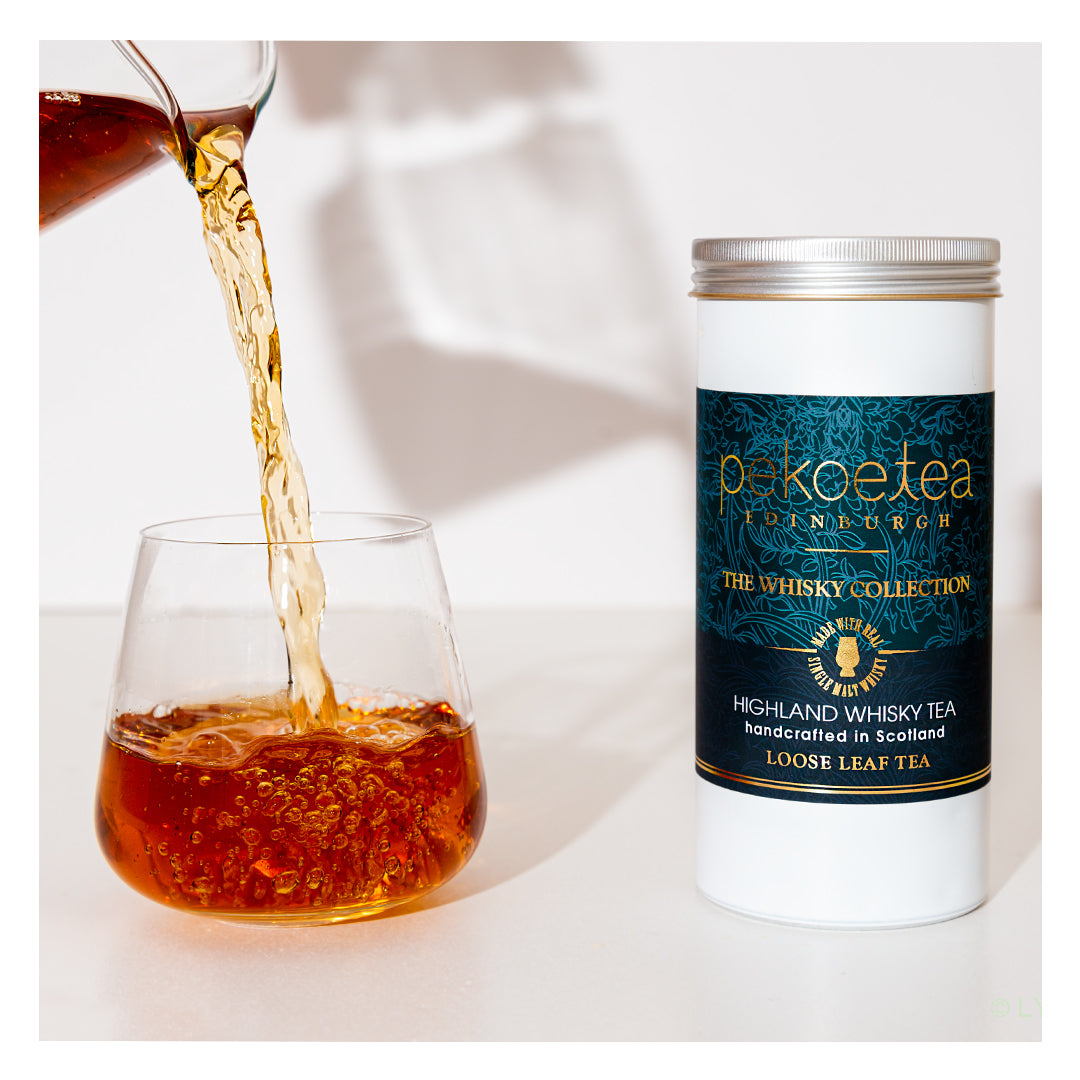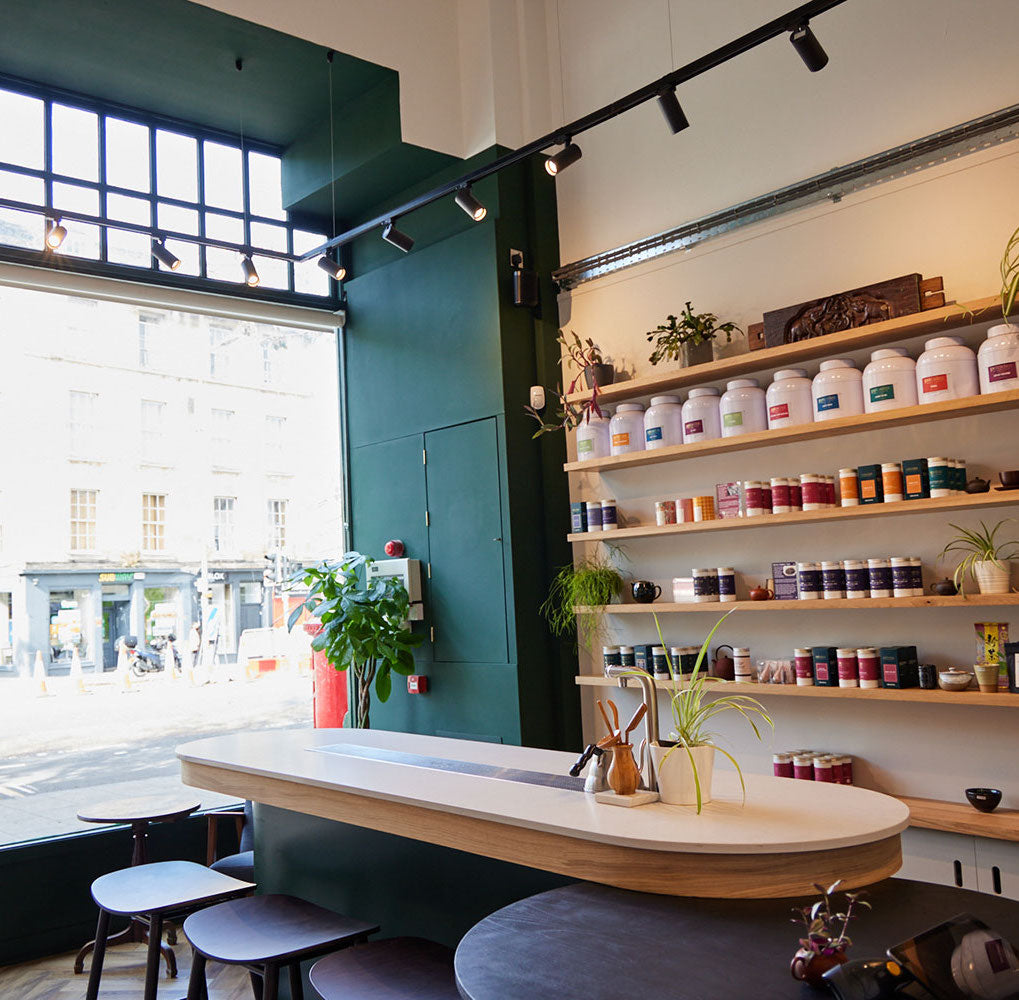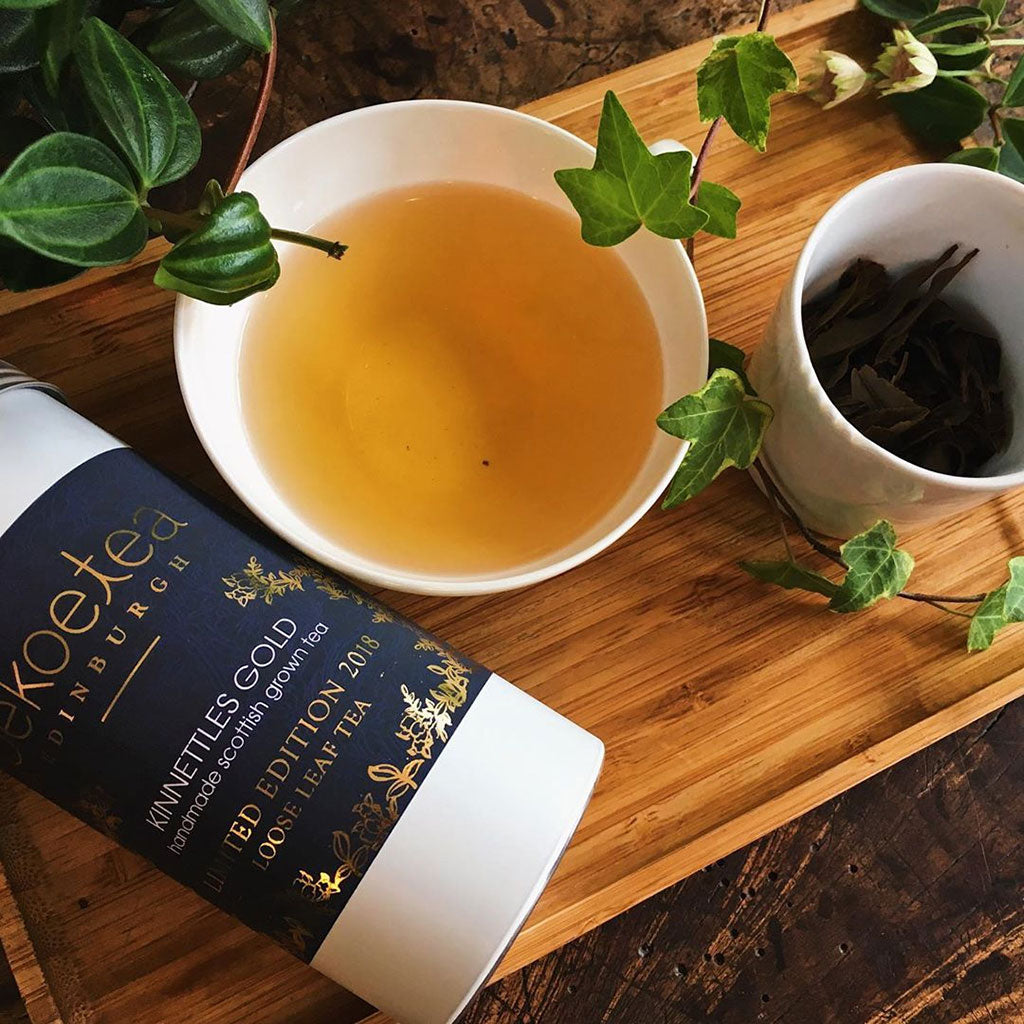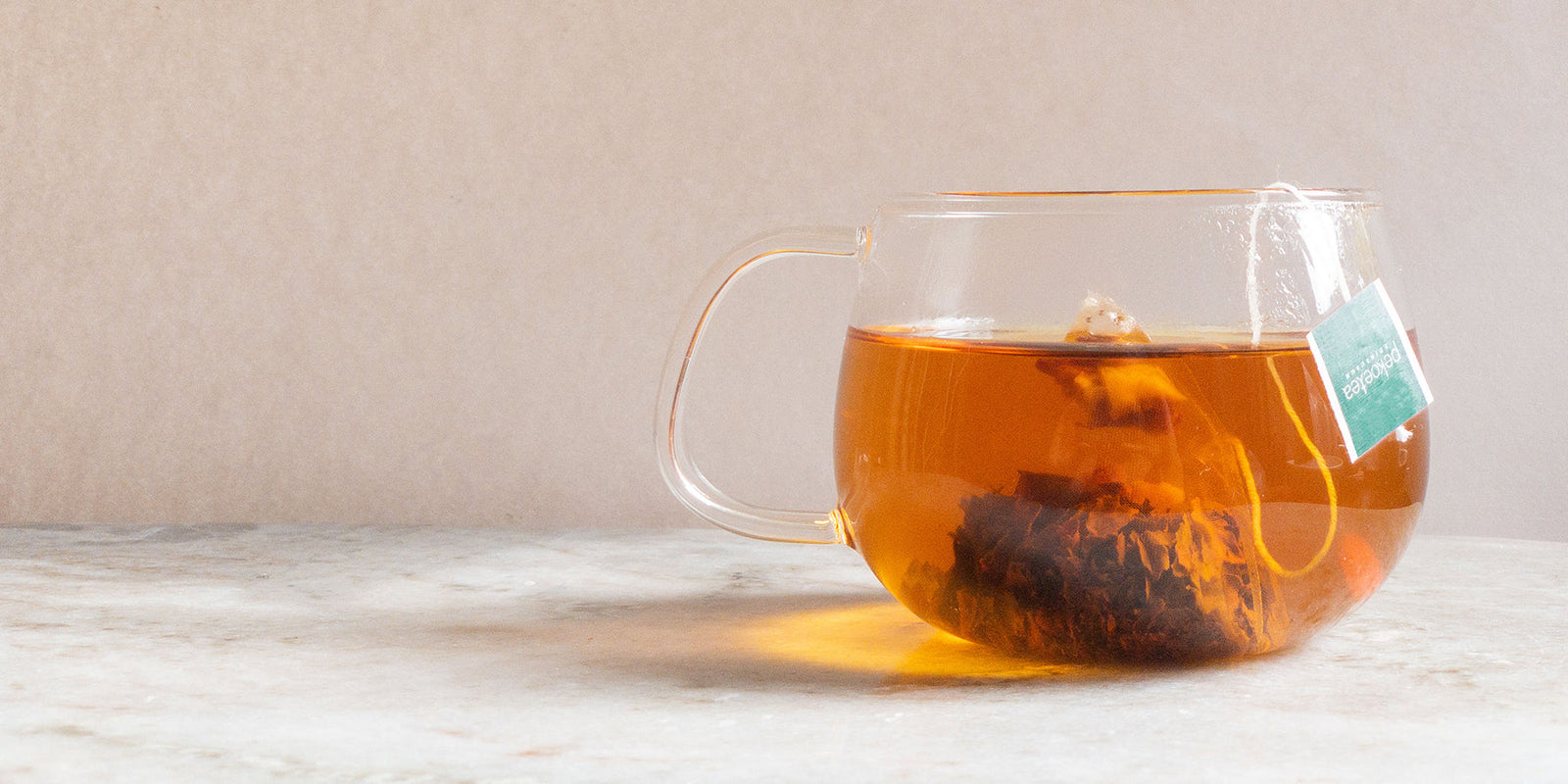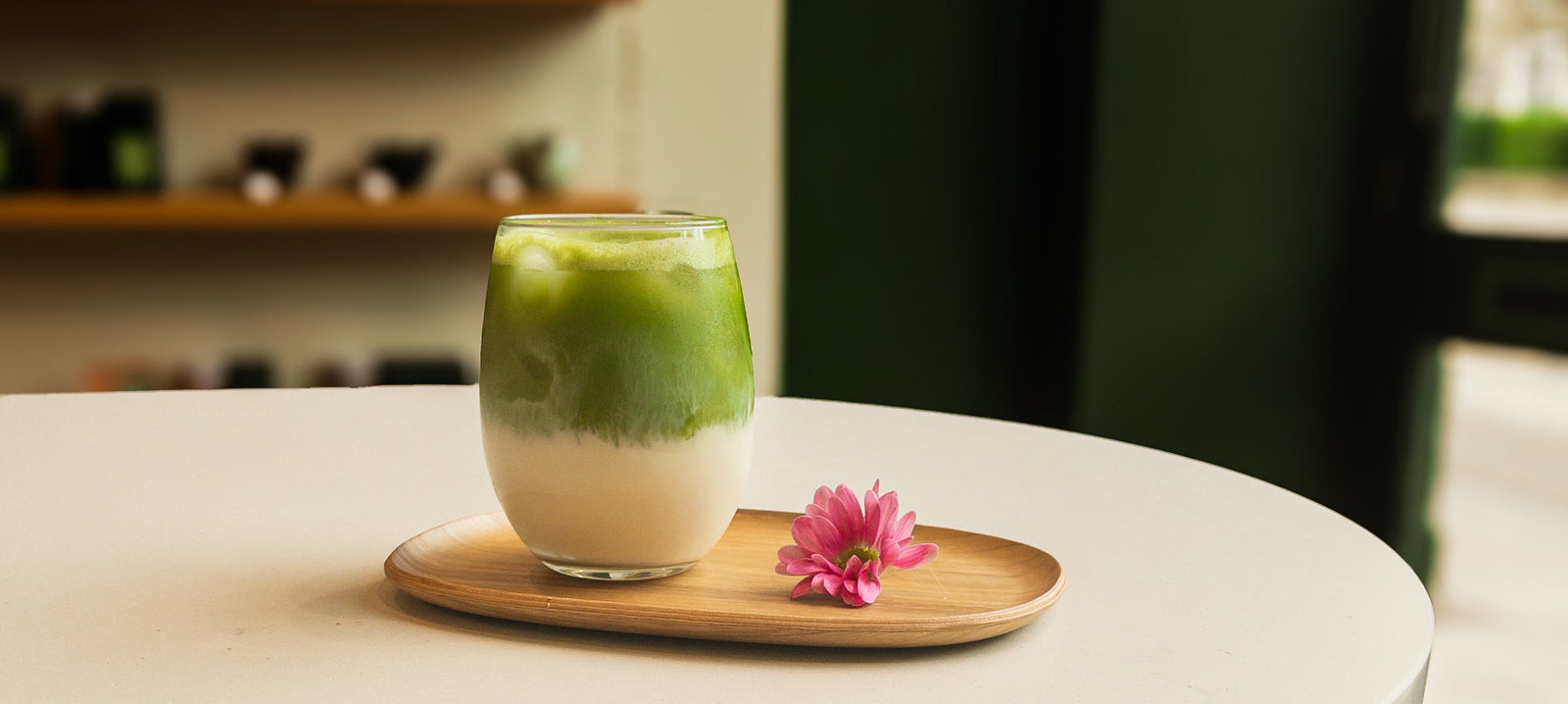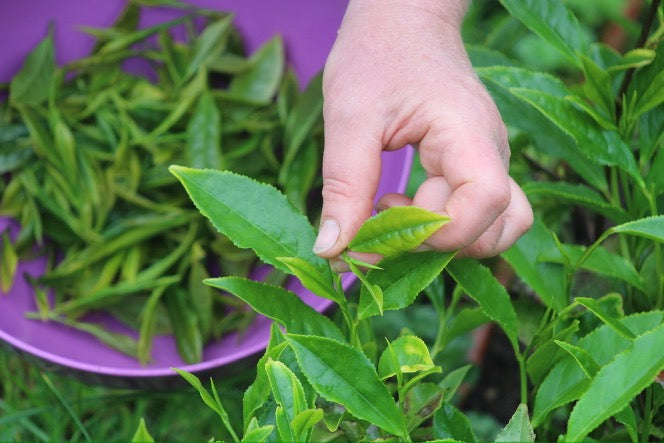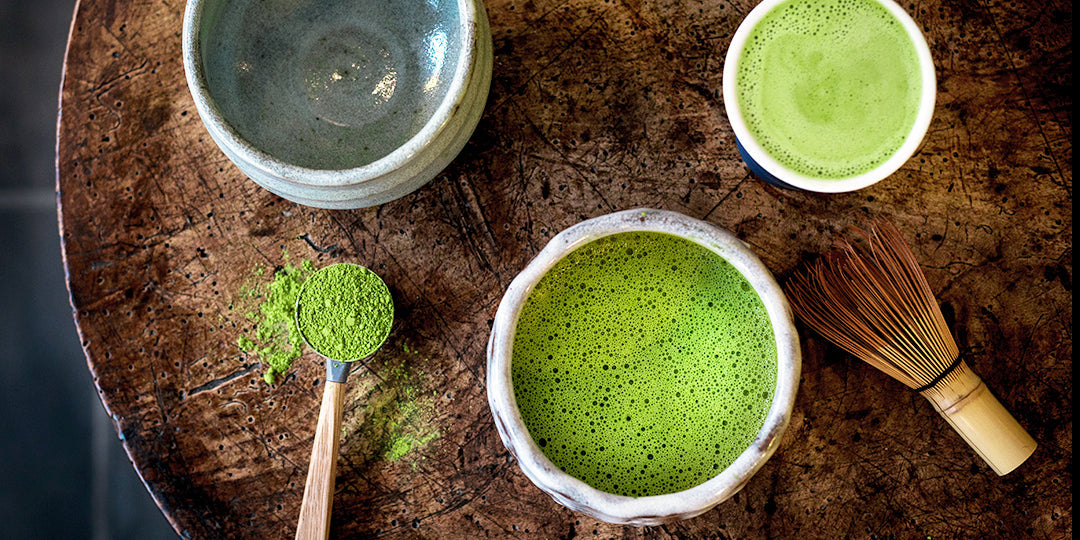Historically PekoeTea has always been a loose leaf tea business, however this year we have diversified and started to offer some of our most popular teas in biodegradable pyramid tea bags. We make our tea bags at our Edinburgh Tea Factory using the same premium teas as our loose leaf blends.
One of the questions we are asked most frequently is: Are your tea bags plastic free? The short answer is yes because we don't use nylon or conventional mineral oil plastics. But it does not fit with our ethos at PekoeTea to simply boast about having plastic free tea bags without delving further and answering the questions about what our tea bag material made from.
What are PekoeTea teabags made from?
We use material made from a non-GMO cornstarch derivative called Poly Lactic Acid (PLA) to make our pyramid tea bags. This has been internationally accepted and certified as a biodegradable material. Under the right conditions it will biodegrade into CO2, water and humus (a soil nutrient) in around 45 days. However just because they are biodegradable does not mean they are suitable for home composting.
What is the difference between biodegradable and compostable?
There is a lot of confusion between the terms biodegradable and compostable. Part of the problem with the term "biodegradable" is that technically everything is biodegradable given time but there has been a lot of misuse of the term recent years. Even plastic with degrade eventually (after millions or years)
The European Standard EN 13432 for compostability, which you can download here, states that for a material to be biodegradable its constituents must be returned to nature by means of organic recycling based on biological processes. To meet this standard materials have to breakdown by 90% within 6 months. At PekoeTea, it is our belief that only materials that meet this standard should be labeled as biodegradable.
We also believe that for something to be sold as compostable, it not only has to meet the standards for being biodegradable, but you must be able to put it in your home compost heap. After the material has broken down there should be no remnants and you should be able to use it in your garden to fertilise your plants.
Our tea bags have been tested and will break down to their constituent parts but only under controlled conditions. So unless you have and anaerobic digester in your back garden, please don't put them in your compost heap. This is not a controlled environment and we don't know how the material will behave or if it will breakdown at all.
PLA has become standard across the tea industry, particularly with luxury tea brands. Unfortunately because of the confusion between biodegradable and compostable some brands market their plastic free tea bags as compostable. We feel this is mis-leading because you cannot put PLA in your home compost heap. This is a different material from the NatureFlex™ film we use in our boxes and caddies, which is home compostable. We even tested this ourselves in my mum's compost bin.
What about our tea bags?
As part of my research for this article I contacted Edinburgh City Council waste team and they have confirmed that the local food waste recycling bins will accept PLA tea bags. In Edinburgh, food waste is used to generate electricity and fertilise farmland. The city council have produced a nice information video that you can watch here. You should always check with you local authority first before disposing of your PLA tea bags in the council food recycling as there may be differences across the country.
So next time you enjoy one of our pyramid tea bags, when you are finished with it, pop the teabag in your local food waste bin and it could help light your house.
Esther

